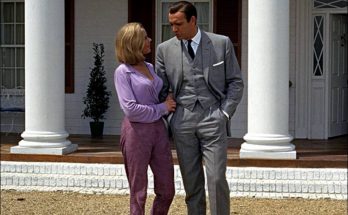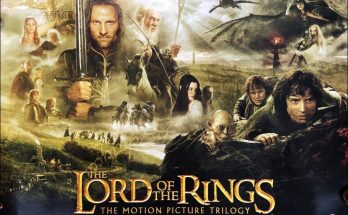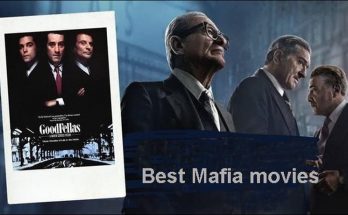The Hunger Games Phenomenon. Welcome to the intense reality of 16-year-old Katniss Everdeen, who must try to survive – by sheer wits and will alone – a future world that is at once high-tech and apocalyptic, glitzy and primal, unsettlingly dangerous and a telltale mirror to our own. Unfolding entirely through Katniss’
intimately personal POV, THE HUNGER GAMES reveals how this miner’s daughter from a dark future transforms from a mere pawn in a lethal televised contest to a soulful, sacrificing heroine who comes to realize that she has even more to protect and fight for than her own family.
Few who have encountered Katniss have been able to resist the visceral excitement of watching her find her strength, resolve and heart while under the most extreme pressure a teenager could imagine. This was certainly true for the production executives at Lionsgate Entertainment. For them, Katniss’ journey jumped off the pages of Suzanne Collins’ literary sensation THE HUNGER GAMES with such beauty and force, they felt instantly it deserved to be captured on screen.
When producer Nina Jacobson had bought the rights to the novel in 2009, THE HUNGER GAMES was just beginning to find a devoted audience. Jacobson brought it to Lionsgate’s film executives Joe Drake and Alli Shearmur, among other studio executives, and they instantly became obsessed with Katniss and her journey. It was only as development began that the popularity of the books swelled in tandem with anticipation of the movie. Millions began to wonder how a filmmaker might bring to life Collins’ fresh twist on a sinister future and – most of all – bring to life the complicated but gutsy heroine who made the book’s adventure feel so harrowingly true.
Ultimately, Lionsgate and Jacobson put together a team, headed by visually bold director Gary Ross, that was equally compelled by Katniss’ arc and how her evolution as a human being touched millions of readers. The idea behind the screen adaptation was to visually get inside Katniss’ head, and ultimately her heart, the same way that Collins had done in words. In that way, the film would not only capture Katniss’ battles with her fellow Tributes in the Games, but would also mine the rich themes Collins had explored through Katniss’ life-changing experience: personal sacrifice, star-crossed love and the question of where our current society might be headed.
Katniss’ world was initially inspired, Collins says, by her fascination with the ancient Greek myth of Theseus – who every nine years sent a phalanx of young boys and girls into a deadly labyrinth to fight the monstrous Minotaur. It was equally influenced by her experiences channel-surfing through an unsettling blur of reality TV and war coverage, wondering what this mix of entertainment and true-life terror boded for the future of society.
Together, these two ideas added up to the birth of Katniss Everdeen – who enters a violent and mythic future from a perspective unlike any other. Her adventure in the Capitol of Panem, once she takes her sister’s place in the Games, might have the breathless pace of a sci-fi thriller, but it is at heart about a girl coming to grips with the moral dilemmas of power, injustice and self-preservation at the same time in life as she is also discovering love, independence and her own identity.
A former children’s TV writer and a mother of two, Collins found a way to make Katniss’ world feel so deeply personal that readers couldn’t help but imagine how they would feel in her place – as she is first driven to save her sister, her family and herself, but then begins to see the glimmer of a chance to make a difference for others across the shadowy landscape of Panem.
Collins was not afraid to take Katniss into risky terrain, because she knew teens were already grappling with these questions in the world around them. In her book proposal for the series, Collins wrote: “Although set in the future, THE HUNGER GAMES explores disturbing issues of modern warfare such as who fights our wars, how they are orchestrated, and the ever-increasing opportunities to observe them being played out.” Yet she also balanced that with Katniss’ growth and evolution into someone as courageous and principled as she is stubbornly tenacious. She noted that Katniss, though initially “distrustful,” takes from this adventure “a deep capacity to love and sacrifice for those few people she cares for.”
The success of THE HUNGER GAMES hinged on readers identifying with Katniss — and that is exactly what happened. The book was soon being passed from hand-to-hand, reader-to-reader, developing a devoted following that flowed into the culture at large. Author Stephen King dubbed Katniss a “bow-and-arrow Annie Oakley,” The Atlantic Monthly called her “the most important female character in recent pop cultural history” and The New York Times praised Collins’ “convincingly detailed world-building and her memorably complex and fascinating heroine.” Stephanie Myer, author of the TWILIGHT series, blogged: “The story kept me up for several nights in a row, because even after I was finished, I just lay in bed wide awake thinking about it.”
Once word began to get out about the books and the impending movie, their popularity began to spread like wildfire. When the film went into production, there were about 8 million copies of the novels in circulation; by the time production wrapped there were 12 million and now the number has exploded to over 26 million. The first novel has since spent more than 180 consecutive weeks and more than three consecutive years to date on The New York Times bestseller list. Collins went on to write two more best-selling books in the series, Catching Fire and Mockingjay, which established Panem as a realm that has taken up permanent residence in the popular imagination.
Early on, Collins made the decision to entrust Katniss and the re-creation of her life in Panem to Lionsgate because she liked their hands-on approach, accessibility and commitment to the spirit of the story across the entire top tier of Lionsgate’s film group. “Everyone we needed to get the movie going was right there on the phone,” she recalls. “The studio was small enough for that to be possible and I felt it would be our best chance of seeing the story become a film.”
Lionsgate made it their mission to show Collins that they would be faithful to her vision for how to bring the book to the screen. “Suzanne thought we were the House of SAW,” recalls Joe Drake of his first phone call with the author, “but we convinced her that we could sensitively and accurately handle the material, citing our work on such films as the Academy Award®-nominated PRECIOUS and Best Picture winner CRASH.”
Nina Jacobson was equally impressed with Lionsgate’s passion for the project. “I felt so connected to it and I was certain that there was a great movie to be made — but one that had to be treated with care,” she explains. “I made a very passionate case to Suzanne that her vision needed to safe-guarded and Lionsgate gave us their full support for a faithful adaptation that would not be about blood and gore, but thematically driven.”
Collins was likewise gratified by Jacobson’s contributions. “Of all the producers we met, I felt Nina had the greatest connection to the work,” says the author. “I believed her when she said she would do everything she could to protect its integrity.”
From the beginning, Drake, along with Lionsgate’s President of Production Alli Shearmur and marketing head Tim Palen, had lovingly referred to Suzanne as ‘Mother Hunger Games.’ Their most important aim was to stay true to their word to her about how the book would be treated, and their choice of director was the first – and maybe the most important – decision they’d make on the path to honoring that commitment to Suzanne and her book.
The process of safeguarding the story and the character of Katniss began with choosing a director that would bring the story to life technically, but more importantly, emotionally. Their choice was sealed when Gary Ross showed up for the first meeting with Lionsgate prepared with extensive storyboards, and a video presentation of real kids talking candidly and passionately about why they love the book so much.
Explains Shearmur, “After this show of tremendous understanding and sensitivity, we all agreed that Ross was the man for the job. He’s known both for the fantastical vision of PLEASANTVILLE and the visceral emotions of SEABISCUIT, and it was that balance that was so essential to this film.”
For Jacobson, Ross had the perfect blend of epic and intimate storytelling skills to immerse the audience directly into Katniss’ most subjective experiences. “Gary is not just a director but a writer/director and that was an important distinction for this movie,” she says. “Getting the book right was such a big responsibility, and Gary’s understanding of how Katniss’ POV had to be the heart and soul of the story was spot on. He really connected with Suzanne, and they ended up writing the script together. Most importantly, while Gary has amazing visual ideas, he always knew this story had to come from a character place. So he approached it in such a way that characters drive the suspense at every turn and the audience has the chance to experience this world completely through their eyes.”
Ross then brought on board producer Jon Kilik, with whom he had collaborated on PLEASANTVILLE. He, too, was won over by the book. “It has elements of classic movies that I’ve always loved, from REBEL WITHOUT A CAUSE to THE BREAKFAST CLUB, blended with a dystopian vision of where our society could be headed. I found that to be an amazing mix and as soon as I read it, I told Gary I was in,”
Kilik recalls. “I’ve known Gary since 1997 and I knew he was the right choice for THE HUNGER GAMES because he has children who love the book, and because he has this very rare and unique ability to evoke both teen angst and alternate worlds. Even though this story takes place in the future, I think Gary perceived that it’s more reflective of today than you might think – and that’s why people, not just kids but adults too, really connect to Katniss and Panem. Katniss is trying to survive a tough world of game playing and manipulation, just as we all are.”
Views: 174



